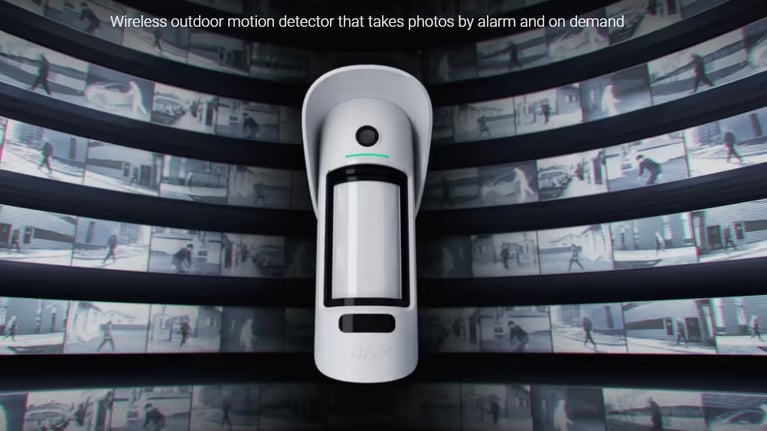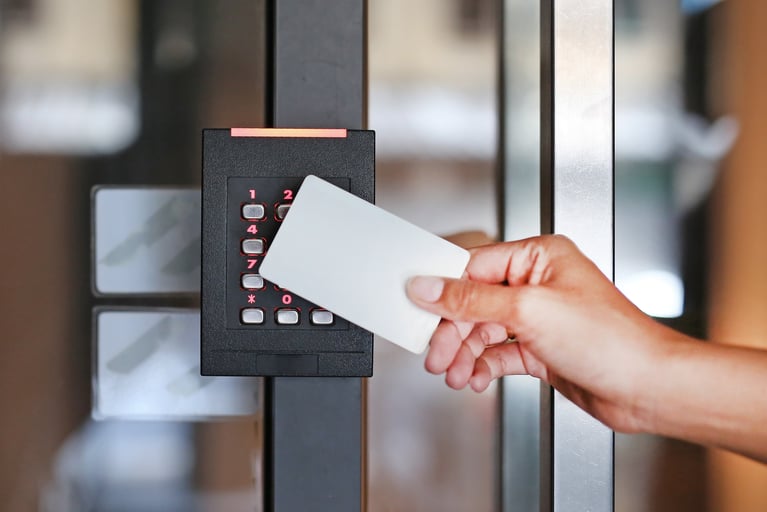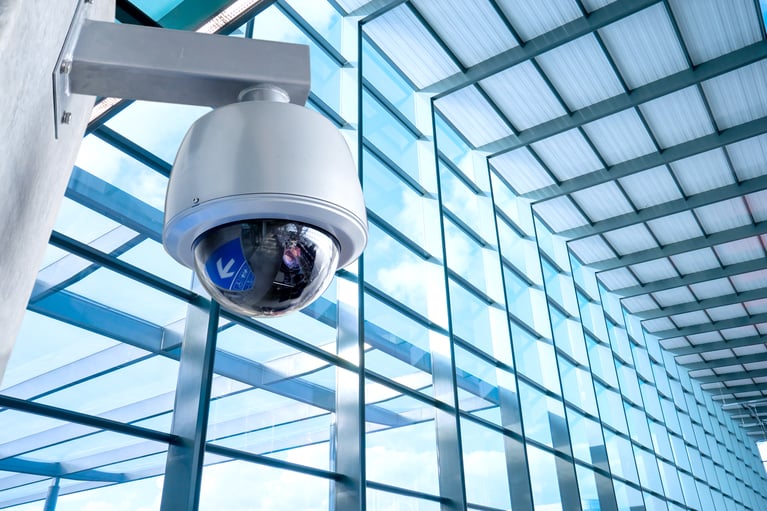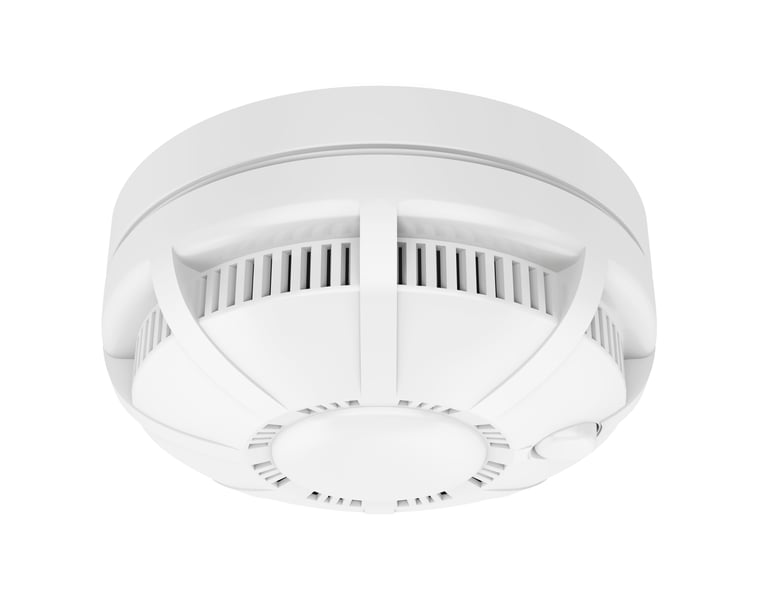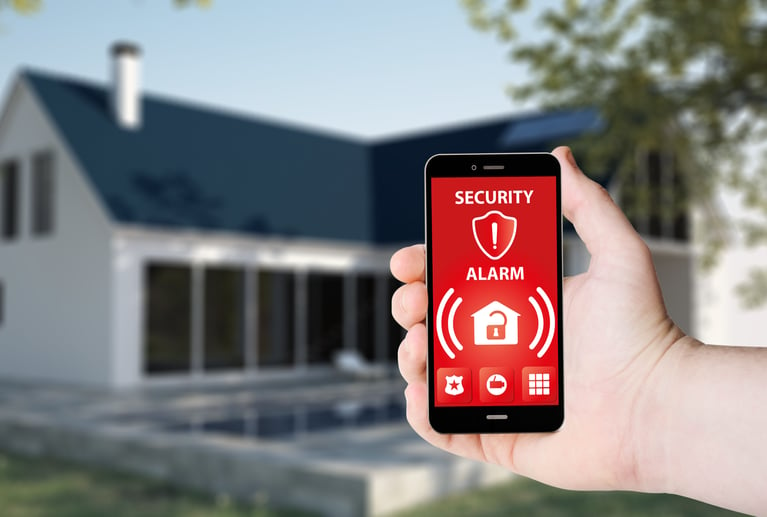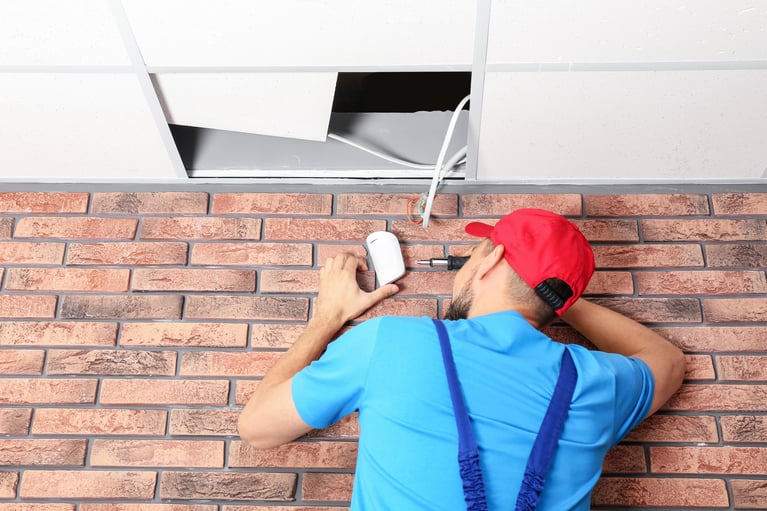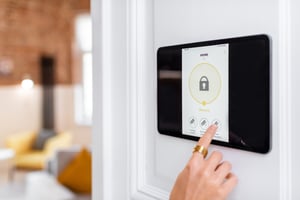 You have a few options when it comes to deciding on an alarm system to protect your home or business. There are pros and cons to each type of system, and no single solution will work best for all properties. When making your decision, be sure to weigh the options and pick the alarm system with benefits that align with your unique needs. In general, there are four types of alarm systems you should consider.
You have a few options when it comes to deciding on an alarm system to protect your home or business. There are pros and cons to each type of system, and no single solution will work best for all properties. When making your decision, be sure to weigh the options and pick the alarm system with benefits that align with your unique needs. In general, there are four types of alarm systems you should consider.
Wireless Alarm Systems
The sensors of a wireless alarm system communicate with the control panel using a secure radio frequency. If a sensor is tripped while the alarm is armed, it transmits a signal that’s picked up by the control panel, and the alarm is triggered. It’s important that all sensors and control panels are within range of each other in order to communicate properly. If your sensors are too far away from the control panel, or there are too many obstacles in the way, the signal won’t be able to reach its intended target.
Since there aren’t any wires to run, wireless alarm systems are the simplest to install. Most wireless systems can be installed without help, although professional installation is always suggested.
Pros
- Simple installation
Cons
- Limited range between sensors
- Battery changes
Best Uses
Wireless alarm systems are great for residential properties and small businesses.
Wired Alarm Systems
Wired alarm systems, as the name might suggest, are hard-wired into your building. Every sensor, control panel, and detector is connected with physical wires. Every part of the system is also wired into your property’s power supply. Wired systems are generally considered to be the most reliable, since you never have to worry about connectivity between sensors or running out of batteries.
Installation of wired alarm systems can be difficult. Unless you’re okay with wires running along your ceilings and walls, walls need to be taken down in order to properly install the system. More difficult installation typically means higher cost.
It’s a common misconception that wired alarm systems don’t have the same versatility or mobile functionality as wireless alarm systems. The truth is that many modern wired systems offer the same remote accessibility as wireless systems.
Pros
- More reliable
- Less maintenance
Cons
- Expensive Installation
Best Uses
Wired alarm systems are best used in larger facilities. When control panels and sensors are connected using wires, distance isn’t a factor. Wired systems are also harder to hack, so they’re generally considered to be slightly more secure than wireless systems as well.
Monitored Alarm Systems
When an alarm is triggered, who gets alerted? With a monitored alarm system, an alert is sent directly to a professional alarm monitoring team who can respond immediately to any type of threat. If there’s a break-in, they’ll dispatch the police. If there’s a fire, the fire department will be contacted. Even for false alarms, a monitoring service will know how to handle it. It’s like having a smart alarm system that can respond differently depending on what triggered the alarm.
Monitored alarm systems ensure that even when you’re not home or able to get to your phone to check for alarm alerts, your property is still protected. They offer unparalleled peace of mind.
Pros
- Most secure
- Reliable
- Customized alarm responses
Cons
- Additional monthly fee
Best Uses
Monitored alarm systems are best for people who are frequently away from their home or business. Even when you’re not there, you’ll feel secure knowing that your property is still being monitored by a professional. They’re also helpful if you’re looking for some additional security.
In reality, having a monitored alarm system is beneficial for all properties, commercial and residential.
Unmonitored Alarm Systems
Instead of sending an alert to a professional security team who can respond to threats, unmonitored alarm systems simply trigger audible and visual signals to alert someone in the immediate vicinity. It’s then up to you or your neighbors to react. Some unmonitored alarm systems can send you an alert to your mobile device in the form of a text, email, or notification, but it’s still up to you to address the threat.
Since there aren’t any security professionals watching over your property, unmonitored alarm systems offer much less protection compared to monitored alarm systems, but they’re usually cheaper.
Pros
- Inexpensive
Cons
- Less protection
- Reliant on the user
Best Uses
Unmonitored alarm systems work best for people on a budget.
Alarm Systems from Four Walls Security
Your property is unique, so it requires a unique security solution. When choosing an alarm system for your home or business, make sure that it’s suited for your specific property. Weigh the pros and cons of each type of alarm system before making a final decision.
If you have any questions regarding the different types of alarm systems or next steps in the process, contact the experts at Four Walls Security. With years of experience in the Brisbane area, we can help you with choosing the right system, installing it in your property, and ensuring that it’s functioning properly. If you’re interested in professional monitoring, we can help with that too! Contact us with your questions or for a free, no obligation quote today.



